El Salvador, a land of amazing beauty and world-class surf, nearly didn’t get the fairytale ending it so deserved. For many years the locals were being poisoned by illegal pesticides and fertilisers, the end result for many was catastrophic kidney failures - an endless torrent of suffering that no one could pinpoint or perhaps more accurately no one was prepared to admit.
It took the efforts of an astute Salvadoran scientist to connect the relationship between the farming chemicals and the illnesses that ensued and bring these issues to the public conscientiousness.
But, in a bizarre twist to the story, no one in government was prepared to listen and for many years the scientist was disregarded as being crazy. This all continued while the locals suffered an unglamorous demise.
It was the very same industry that was creating such devastating problems and causing pesticides to be filling graves
In the 1960s, Cotton and sugar cane cultivations were the major income crops for the people of El Salvador. It was the age of industry and anything that could increase production was seen as a bonus. Highly toxic agro-chemicals, that were banned in the United States and Europe, found their ways into El Salvador often branded under different names to avoid detection. As long as money was made, everyone was happy.

Mayor Salvador Menendez leading a night rally with school kids demanding the removal of toxic barrels from San Luis Talpa
Fast forward to 1995
Kidney failures and chronic kidney disease continued to climb to the point that the situation could no longer be ignored by the national press.
But the media would not identify the causes for the high incidences of kidney failures because many around the country depended on the plantations for income and employment. As a result, the situation worsened, while the press failed to investigate and government officials became too afraid to speak up.
Four of these barrels exploded, with devastating effect, releasing poisonous materials into the air. Plants, cows and human beings died immediately
One Mayor, however, decided enough was enough. Mayor Salvador Menendez began campaigning to discover the truth. Dozens of people were dying every month and eight out of every ten families had a member suffering from kidney disease.
One of the companies facilitating the problem, Quimagro Corp, held a huge storage of dangerous chemicals totalling many tonnes. They ran into financial problems, and when finally declared bankrupt they left their premises leaving abandoned barrels of agro-chemicals unattended. Exposed to the elements, these chemicals over time leaked into the soil and water further emancipating the problem.
In 2013 the situation worsened considerably further when four of these barrels exploded, with devastating effect, releasing poisonous materials into the air. Plants, cows and human beings died immediately.
No one was held accountable since Quimagro Corp. no longer existed. Eventually Mayor Salvador Menendez managed to arrange the correct disposal of the remaining barrels, but by this time most of the damage had been done.
Sugar cane was a huge part of the local industry, so banning pesticides outright would have caused huge economic problems for the locals, but the forward thinking Mayor came up with another solution to diversify local industry. The way out was found through surfing.
Starting in the first few months of 2014, he decided to promote surfing in San Luis Talpa, to diversify the local economy away from sugar cane.
One of the first steps Mayor Salvador Menendez took was to meet with the local Surf Federation (FESASURF). It was agreed that the poor communities along the beach breaks needed a school to teach the kids surfing. This is not only a great hobby for the kids, but also a crime prevention activity. With no disposable income and no shopping centers in the area, the San Luis Talpa kids can spend most of their free time surfing.

Mayor Salvador Menendez (green fluorescent shirt) with Jaime Delgado (President of FESASURF) and athletes from the first surf competition held in the city.
For anyone looking for uncrowded surf then San Luis Talpa is a good choice. The area hasn’t been heavily developed and there is plenty of wave choice. If you are pressed for time then the beach breaks are ideal. They are located no more than 15 kilometers away from the International Airport. There is no other country in Central America with an airport that close to a good quality surf spot.
Before San Luis Talpa discovered surfing, it seemed like a cursed city. The only news coming out of the city tended to be funerals from residents dying from kidney failure, but a ‘Lone Ranger ‘ Mayor fighting government bureaucrats and transnational agro-chemical corporations to ban toxic pesticides.
Mayor Salvador Menendez isn’t into his surf, he prefers to ride horses. But for all of his efforts in giving new hope by promoting surfing in his town, he has become known as the Surfing Mayor.
Words and images Jorge Dominguez













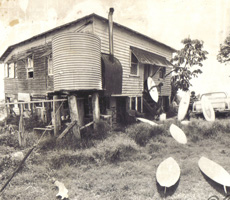
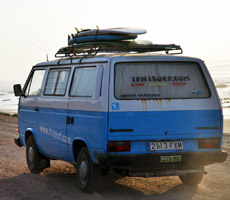
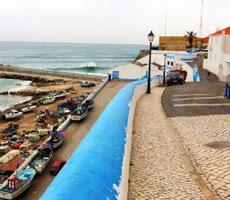
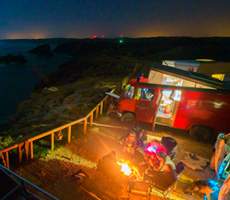


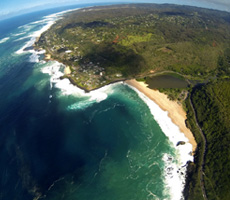
No Comments